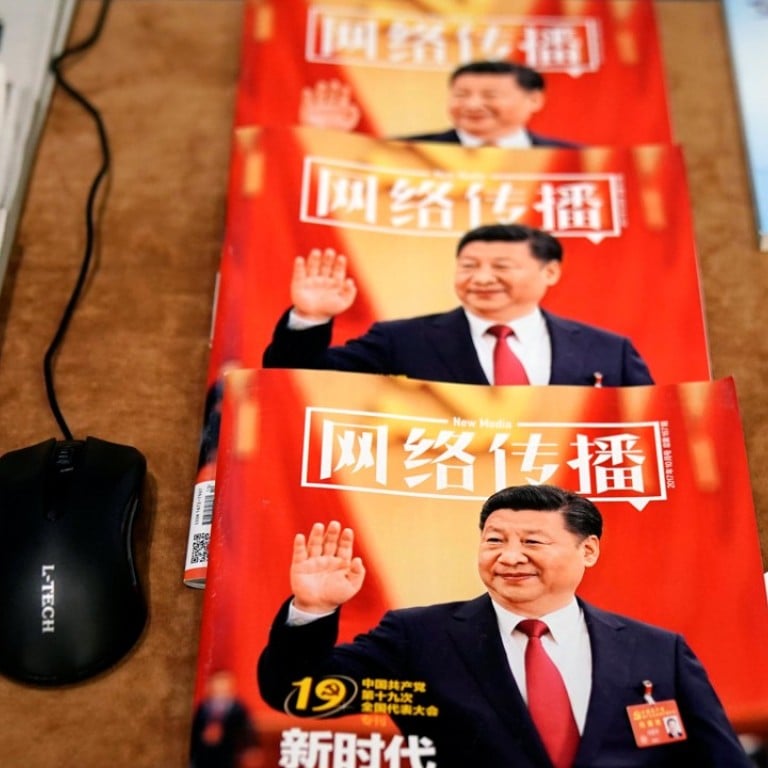
Xi Jinping renews ‘cyber sovereignty’ call at China’s top meeting of internet minds
Apple chief executive Tim Cook and Google boss Sundar Pichai attend conference as China tightens grip over cyberspace
Chinese President Xi Jinping has again sought to rally support for “cyber sovereignty” in a message to China’s annual World Internet Conference on Sunday.
In a letter read out to the conference in Wuzhen, Zhejiang province, by Communist Party publicity chief Huang Kunming, Xi said developments online were raising many new challenges to sovereignty and security, and China was “willing to work with the international community to respect cyberspace sovereignty and promote partnerships”.
The letter underscores Xi’s previous cyber sovereignty calls to the conference in which he has promoted the idea that all countries have the right to regulate the internet within their own borders.
But the letter was a departure from last year when Xi delivered the message via a video link and 2015 when he pressed his point in person.
Xi’s presidency has coincided with extraordinary growth and tighter censorship online in China. Tencent and Alibaba are now among the world’s most valued internet companies, followed by an army of powerful players such as Baidu, JD.com and handset maker Xiaomi. Alibaba owns the South China Morning Post.
A report by Deloitte and China Venture released in September said China had 98 unicorns – 40 per cent of the world’s companies valued at at least US$1 billion before listing.
The growth has been in large part due to the widespread use of internet applications in China, making the country a leader in services from cashless payments to bike sharing.
“China’s digital economy development is entering a fast lane, and China hopes to promote all countries in the world to jump on the internet and digital economy express,” Huang said, reading from Xi’s letter.
Zhejiang party chief Che Jun said Xi “had pointed to the future path of the world’s internet development and governance” and showcased China’s responsibility as a major internet country.
The idea that each country has the right to censor and regulate the internet is taking root elsewhere. For example, Russia temporarily blocked Tencent’s social media app WeChat in May because it did not comply with local regulations.
Also addressing the conference on Sunday were Apple chief executive Tim Cook and Google boss Sundar Pichai.
In the last year, Apple has had to remove various apps the government does not like, including Skype, from its local App Store, and Google is still blocked in China.
China was also last in terms of internet freedom in a survey last month by Freedom House, a US pro-democracy group that lists Google among its funders.
One person who won’t be making an appearance this year is China’s former internet tsar Lu Wei, who delivered a speech at the closing ceremony two years ago. Lu has been detained amid an internal party corruption investigation.

